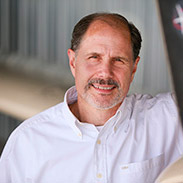-
About
- Close
-
PPS Benefits
- Close
-
Coverage Overview
- Close
- Participants Only
-
Resources
- Close
49 USC §44709 is the statute that gives the FAA broad authority to reexamine pilots. A reexamination is sometimes called a 709 ride, denoting the partial statute section number and the fact that many reexaminations involve a ride in an aircraft. The FAA seeks reexamination when there’s a reasonable basis to question a pilot’s qualification to hold a certificate. In an instance where the FAA seeks to reexamine a pilot and the pilot cannot promptly comply, a certificate deposit may be a practical option. The practice is also used when a pilot fails a first reexamination and is offered a second opportunity. In both instances, the FAA will issue the pilot a temporary student pilot certificate so that the pilot can continue to fly and train in preparation for the reexamination, but the pilot is not permitted to carry passengers. The temporary certificates are valid for 30 days and can be re-issued by the FAA.
Let’s say, for instance, a pilot lands gear-up in a Bonanza and an investigation conducted by an FAA inspector reveals that the pilot simply neglected to lower the gear. In such an instance, it is not unusual for the FAA to seek to reexamine the pilot. The inspector will issue a letter which will or should reference the basis for the reexamination and outline the scope of the reexamination. Because the gear-up occurred in a complex airplane, the FAA will normally require that the reexamination be conducted in a complex airplane. The need to have the 709 ride in an aircraft with similar landing characteristics sometimes causes delays and the need for a certificate deposit. Let’s say the pilot’s Bonanza won’t be repaired for 90 days or so and the FAA wants the reexamination done within 30 days. Unless the pilot is able to find a complex airplane to borrow or rent, an accommodation will be needed. That accommodation may come in the form of an agreement, in which the pilot places his certificate on deposit at the FSDO and the FAA agrees to delay the reexamination. Thereafter, if the pilot takes and passes the reexamination the inspector will return the certificate on the spot.
Note that placing a pilot certificate on deposit with the FAA is not the same as surrendering a certificate. As noted above, a deposit is more of an accommodation allowed by FAA under certain circumstances. A certificate surrender, on the other hand, is an altogether different action. In most instances a surrender is permanent and requires a formal written agreement acknowledging that its reissuance is subject to the pilot re-taking and passing the tests prescribed for its issuance in the first place (see FAR 61.27). Despite the noted distinction, there are numerous pilots who surrendered their certificates without fully realizing the consequences. It’s highly recommended that you seek competent legal counsel before surrendering or depositing any certificate.
